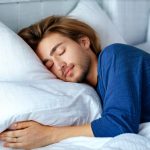Waking up in the middle of the night to use the bathroom is an incredibly common experience. For many, it’s a minor inconvenience – a brief interruption before drifting back to sleep. However, for others, these nighttime trips become frequent and disruptive, significantly impacting sleep quality and overall well-being. It’s not simply about losing minutes of sleep; it’s about the disruption to sleep architecture—the natural progression through different stages of sleep that are vital for restorative rest. Repeatedly waking up breaks this cycle, leaving you feeling tired even after a full night in bed.
The frustration stems from more than just lost sleep. The act of getting out of bed, navigating in the dark, and then returning to fall back asleep can trigger anxiety and mental stimulation, further hindering relaxation. This creates a vicious cycle where worry about needing to get up again becomes a self-fulfilling prophecy. Understanding why these nighttime trips happen is the first step towards managing them and reclaiming peaceful nights. It’s important to remember that occasional bathroom breaks are normal; it’s the frequency and disruption they cause that determine whether intervention is needed.
The Physiology of Nighttime Urination: Why Does This Happen?
Our bodies naturally adjust their functions during sleep, including kidney activity. During the day, antidiuretic hormone (ADH) production slows down as we drink fluids, but it increases at night to reduce urine production and allow for uninterrupted sleep. However, several factors can disrupt this process, leading to nocturia – the medical term for excessive nighttime urination. One common culprit is simply fluid intake before bed. While staying hydrated is crucial during the day, consuming large amounts of liquids in the evening overwhelms the kidneys’ ability to regulate fluids overnight. Caffeine and alcohol also play a significant role, acting as diuretics that increase urine production. Beyond lifestyle factors, underlying medical conditions can contribute to nocturia, including diabetes, heart failure, an enlarged prostate (in men), and sleep apnea.
The relationship between bladder capacity and nighttime urination is also important. As we age, bladder capacity naturally decreases, meaning the bladder fills up faster and sends signals to the brain more frequently. This isn’t necessarily a sign of disease, but it can contribute to needing to get up during the night. Furthermore, hormonal changes, particularly in women after menopause, can impact bladder control. It’s also worth noting that some medications have diuretic effects or can otherwise interfere with sleep and urination patterns. Understanding these physiological factors is essential for identifying potential solutions.
Finally, it’s not always about how much you drink but what you drink. Sugary drinks and those containing artificial sweeteners can irritate the bladder, leading to increased urgency. Similarly, acidic foods like citrus fruits or tomatoes may exacerbate bladder sensitivity in some individuals. Considering these dietary nuances can be a simple yet effective step towards reducing nighttime bathroom trips.
Dietary & Lifestyle Adjustments for Better Sleep
Making small changes to your daily routine can significantly reduce nocturia and improve sleep quality. The cornerstone of this approach is fluid management. This doesn’t mean restricting fluids altogether; it means timing them strategically. Here’s a practical plan:
- Limit fluid intake 2-3 hours before bed: Focus on drinking most of your daily water during the day.
- Avoid diuretics: Reduce or eliminate caffeine and alcohol, especially in the evening. Be mindful of hidden sources like chocolate and some teas.
- Be aware of bladder irritants: Limit citrus fruits, tomatoes, artificial sweeteners, and carbonated beverages if you suspect they aggravate your bladder.
Beyond fluid intake, consider these lifestyle modifications:
- Regular exercise: Promotes overall health and can improve bladder control, but avoid intense workouts close to bedtime.
- Pelvic floor exercises (Kegels): Strengthen the muscles that support the bladder, particularly beneficial for women.
- Double voiding: After urinating before bed, wait a few minutes and then try to empty your bladder again to ensure complete emptying.
These adjustments are often the first line of defense against nocturia. They empower you to take control of your sleep without relying on medication or invasive procedures. Consistency is key: it takes time for these changes to become habits and yield noticeable results.
Addressing Underlying Medical Conditions
While lifestyle modifications can help, it’s crucial to recognize that frequent nighttime urination may indicate an underlying medical condition. If dietary and behavioral adjustments don’t provide sufficient relief, consulting a healthcare professional is essential. Diabetes is a common culprit; elevated blood sugar levels increase urine production. Untreated heart failure can lead to fluid retention, causing nocturia. In men, an enlarged prostate (benign prostatic hyperplasia or BPH) restricts the flow of urine and increases frequency.
Sleep apnea, a condition characterized by pauses in breathing during sleep, is often linked to nocturia. The body releases atrial natriuretic peptide (ANP) during these breathing interruptions, which promotes fluid excretion through the kidneys. Proper diagnosis is paramount – your doctor may recommend tests such as a urinalysis, blood tests, and possibly urodynamic studies to assess bladder function.
Treatment for underlying conditions varies depending on the diagnosis. Diabetes management involves controlling blood sugar levels through diet, exercise, and medication. Heart failure treatment focuses on improving heart function and reducing fluid buildup. BPH can be managed with medications or surgery. Sleep apnea is typically treated with continuous positive airway pressure (CPAP) therapy. Don’t self-diagnose; seek professional medical evaluation.
Optimizing Your Bedroom Environment & Sleep Hygiene
Even after addressing physiological factors, a conducive sleep environment and good sleep hygiene are crucial for minimizing nighttime disruptions. A dark, quiet, and cool bedroom promotes relaxation and deeper sleep. Use blackout curtains to block out external light, earplugs or white noise machines to mask disruptive sounds, and maintain a comfortable room temperature (around 65-68°F). Consistency is vital: go to bed and wake up around the same time each day, even on weekends, to regulate your body’s natural sleep-wake cycle.
Establishing a relaxing bedtime routine signals to your body that it’s time to unwind. This could include:
- A warm bath or shower
- Reading a book (a physical book is preferred over electronic devices)
- Gentle stretching or yoga
- Listening to calming music
Avoid screen time (phones, tablets, computers) at least an hour before bed, as the blue light emitted from these devices can suppress melatonin production—the hormone that regulates sleep. If you do wake up during the night, resist the urge to check your phone or watch TV. Instead, focus on deep breathing exercises or a calming visualization technique to help you fall back asleep. Creating a sanctuary for sleep is an investment in your overall health and well-being.
Ultimately, managing nighttime bathroom trips requires a holistic approach—addressing both lifestyle factors and potential underlying medical conditions. It’s about understanding your body, making informed choices, and prioritizing restful sleep. Don’t hesitate to seek professional guidance if you’re struggling to find relief on your own.





















